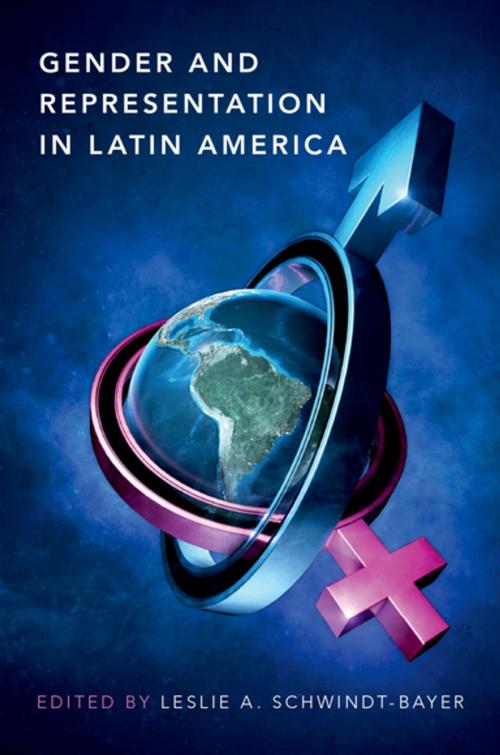Gender and Representation in Latin America
Nonfiction, Social & Cultural Studies, Political Science, Politics, History & Theory, International| Author: | ISBN: | 9780190851255 | |
| Publisher: | Oxford University Press | Publication: | January 4, 2018 |
| Imprint: | Oxford University Press | Language: | English |
| Author: | |
| ISBN: | 9780190851255 |
| Publisher: | Oxford University Press |
| Publication: | January 4, 2018 |
| Imprint: | Oxford University Press |
| Language: | English |
In the past thirty years, women's representation and gender equality has developed unevenly in Latin America. Some countries have experienced large increases in gender equality in political offices, whereas others have not, and even within countries, some political arenas have become more gender equal whereas others continue to exude intense gender inequality. These patterns are inconsistent with explanations of social and cultural improvements in gender equality leading to improved gender equality in political office. Gender and Representation in Latin America argues instead that gender inequality in political representation in Latin America is rooted in institutions and the democratic challenges and political crises facing Latin American countries and that these challenges matter for the number of women and men elected to office, what they do once there, how much power they gain access to, and how their presence and actions influence democracy and society more broadly. The book draws upon the expertise of top scholars of women, gender, and political institutions in Latin America to analyze the institutional and contextual causes and consequences of women's representation in Latin America. It does this in part 1 with chapters that analyze gender and political representation regionwide in each of five different "arenas of representation"-the presidency, cabinets, national legislatures, political parties, and subnational governments. In part 2, it provides chapters that analyze gender and representation in each of seven different countries-Argentina, Chile, Costa Rica, Uruguay, Mexico, Brazil, and Colombia. The authors bring novel insights and impressive new data to their analyses, helping to make this one of the most comprehensive books on gender and political representation in Latin America today.
In the past thirty years, women's representation and gender equality has developed unevenly in Latin America. Some countries have experienced large increases in gender equality in political offices, whereas others have not, and even within countries, some political arenas have become more gender equal whereas others continue to exude intense gender inequality. These patterns are inconsistent with explanations of social and cultural improvements in gender equality leading to improved gender equality in political office. Gender and Representation in Latin America argues instead that gender inequality in political representation in Latin America is rooted in institutions and the democratic challenges and political crises facing Latin American countries and that these challenges matter for the number of women and men elected to office, what they do once there, how much power they gain access to, and how their presence and actions influence democracy and society more broadly. The book draws upon the expertise of top scholars of women, gender, and political institutions in Latin America to analyze the institutional and contextual causes and consequences of women's representation in Latin America. It does this in part 1 with chapters that analyze gender and political representation regionwide in each of five different "arenas of representation"-the presidency, cabinets, national legislatures, political parties, and subnational governments. In part 2, it provides chapters that analyze gender and representation in each of seven different countries-Argentina, Chile, Costa Rica, Uruguay, Mexico, Brazil, and Colombia. The authors bring novel insights and impressive new data to their analyses, helping to make this one of the most comprehensive books on gender and political representation in Latin America today.















